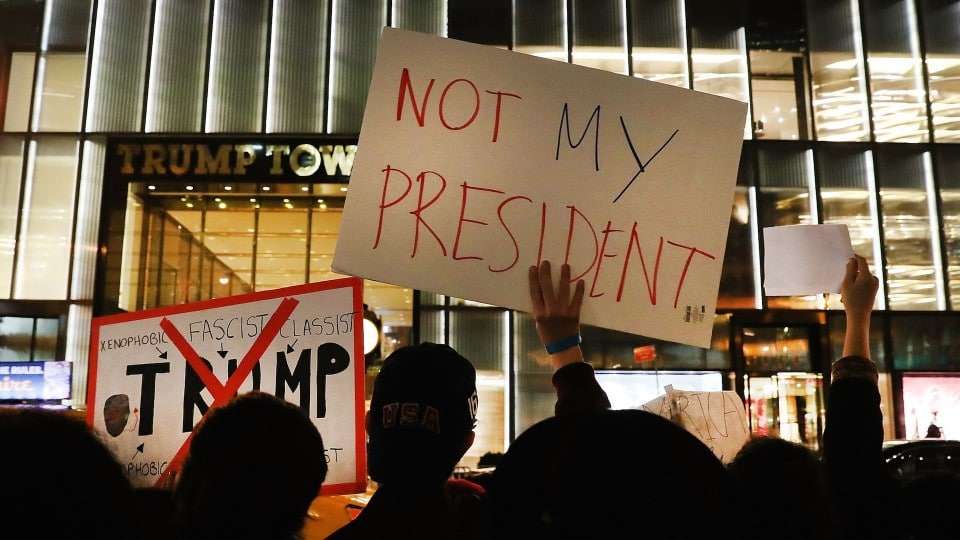Good lawyers don't deplore their judges and jurors -- advice to the young and politically minded

I was on a panel on the election last night at UCLA, and one of the questions was about "what to do now?" As you might gather, the audience was likely overwhelmingly on the left, and to many students the question was "How do we resist the Republican program?"; to some of the questioners and some of the panelists, it seemed to be "How do we resist the awful people who support the Republican program?" Though I voted against Trump, these are not generally my political allies.
But I felt I had an obligation to the students to give them the best advice I could, since I'm a teacher at their institution. One of the students - who I didn't know - came up to me afterward and said that she thought the lawyer analogy I drew was helpful to her, which influenced me to write this up. Here's roughly what I came up with, and I think it might be useful for young conservatives and young libertarians as well as young liberals. (Some conservatives can be as good at deploring as some liberals, and some libertarians use their affection for both social and economic freedoms to deplore twice as much either the liberals or the conservatives.)
* * *
My advice: Stop deploring.
Hillary Clinton's condemnation of half of Trump supporters as a "basket of deplorables" was a famous wrong move on her part (as Romney's 47 percent comment had been a wrong move on his). But it's important to think about why it's a bad approach: Why, even if some of your adversaries' views really are deplorable, thinking this way isn't useful.
If you're trying to influence the public, think of yourself as a lawyer, and of voters as your judges and jurors. Except that there are no peremptory challenges or challenges for cause. You can't strike people because they're prejudiced, or because you think they are. You're stuck with them, and they'll be passing judgment on your client - on your ideas and ideals that you are arguing for. Now what are you going to do?
Good lawyers don't deplore their judges and jurors. Partly that's because they don't want to alienate the people who will be passing judgment on them. Deploring obviously turns off the deplored.
But it's also because deploring blinds the deplorer. If you focus on how evil some of your judges are, you won't do a good job of figuring out how you can persuade them - how you can find common ground, how you can fit your requests into their worldview. Good lawyering, like good politics, in large measure relies on empathy: The ability (which starts the willingness) to put yourself into the judge's and juror's shoes, to identify the arguments against you that they see as most compelling and to figure out how you can make your arguments compelling to people like them - not to people like you, but to people like them, however benighted you might otherwise think they are.
That's especially because giving in to the urge to deplore will systematically lead you to misjudge what really animates some of your judges and jurors. The most natural thing in the world is for us to assume the best motives on the part of our friends and to assume the worst motives on the part of our adversaries. Indeed, it's natural because it's often so emotionally rewarding.
Sometimes we're right about the motives of some chunk of our adversaries. But often we're wrong. Focusing on how deplorable some judges' or jurors' views are will often lead us to misunderstand what really drives them, and how we can use that to lead them to our way of thinking (or at least our way of voting).
Not all opponents of immigration, for instance - or of illegal immigration - are racists or xenophobes. Maybe even most of them aren't. But whether or not they are, deploring them won't help you persuade them to vote for your clients. Trying to empathize with them, on the other hand, might help. [To my conservative and libertarian friends (and to myself) I'd say a similar thing about opponents of conservative Christian influence on public life, or opponents of free markets, or opponents of gun rights or free speech on campuses or drug legalization.]
